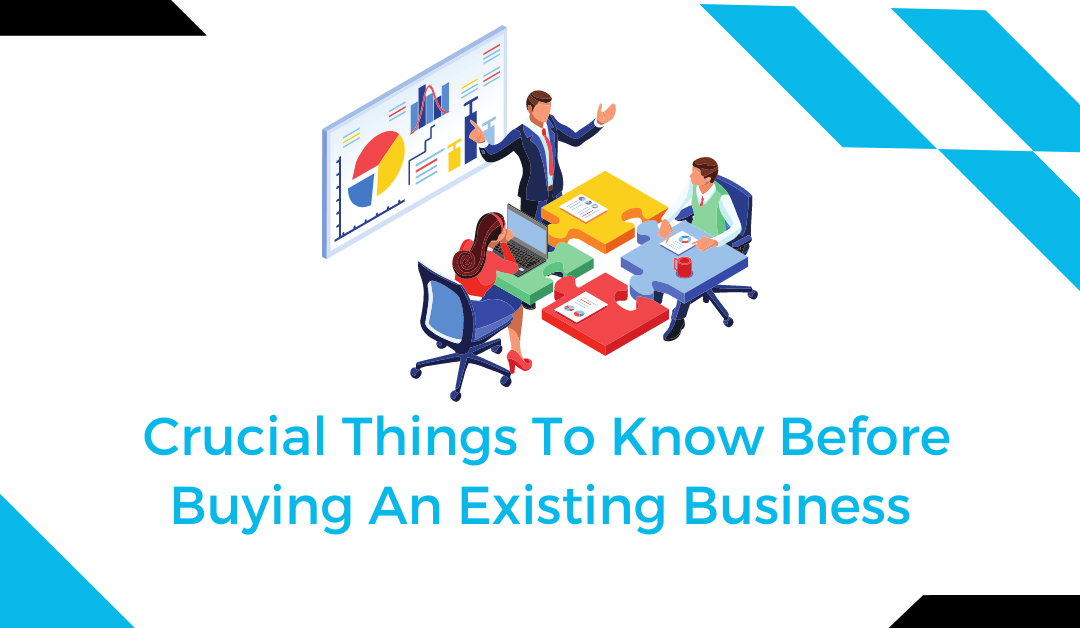Crucial Things To Consider Before Buying An Existing Business
When starting your business, you may wonder if it is better to build something from the ground up or buy an existing business. Each choice has advantages and drawbacks.
Owning an existing business can bring significant perks, such as already-established customers and a recognized brand. However, it can also be tricky at the same time.
Hence, consider all the factors because, in this case, even minor details have a significant impact. You can lose all of your bank balance if you will not pay attention.
However, taking the time to find out as much information as possible before you make your purchase will help ensure that you are making the right choice and that you will not run into any issues later on.
With that in mind, we have compiled this list of crucial things to consider before buying an existing business.
So, let’s get started without further ado!
-
ANALYZE THE FINANCIAL SITUATION OF THE BUSINESS
The first step in looking for a business to buy is to review its financial health.
The seller should provide a complete set of financial statements, and you will also need to hire your accountant or consultant to do a more detailed analysis.
The accountant will help you review how much profit the company has made over time, how much cash it has on hand, how much debt it has (including both short-term and long-term), and its break-even point for expenses and revenues.
You can use these calculations as benchmarks to see if it is worth buying this company.
-
RESEARCH THE POTENTIAL LEGAL LIABILITIES OF THE BUSINESS
Another important aspect is whether the business you are considering has legal liabilities. If there are, you must speak with a lawyer or accountant before buying that business.
It might be worth waiting until the existing owner fixes these problems before making your offer for purchase. Their legal liabilities could affect your ability as the new owner.
-
ANALYZE ITS MARKET VALUE
Another crucial thing to do is to get a clear understanding of the market value of the business you are looking at purchasing.
It is the best way to set your expectations and ensure you are getting a good deal for what you are paying.
To determine the market value of the business you are interested in, you will need to look at specifics like revenue and expenses, what markets they are targeting, their pricing, and more.
-
VERIFY THE ASSETS INVOLVED IN A DEAL
When you buy a business, you will have its assets and liabilities.
The assets include buildings, equipment, inventory, cash on hand, intellectual property (copyrights and patents), and the company name.
Hence, you must examine what assets come with the deal. So, there are no surprises later on.
-
DETERMINE THE LEGAL STATUS OF THE BUSINESS
The legal structure of the business—whether it is a corporation, partnership, or sole proprietorship—is another crucial element to consider.
It will determine how it is taxed and what type of contracts you need.
Furthermore, it will tell you what state law applies to employment contracts, sales tax, and property leases.
-
CHECK NECESSARY LICENSES OF THE BUSINESS
Lastly, before you finalize the purchase of a business, it is crucial to verify the licenses and permits are up-to-date.
If any of the licenses or permits is past due, state or municipal authorities may penalize you severely.
Hence, it is best to contact those agencies before signing a purchase contract.
FINAL STATEMENT
To conclude, there are a lot of things that need special attention while buying an existing business. Knowing the answers to the questions mentioned below will help you determine if this opportunity is worth it for you.
- Is the business in good financial standing?
- How do employees feel about their working conditions?
- What is the current value of the firm?
- What do the directors of the firm think about its future?
Finally, no matter how excited you are about acquiring a new company, always take your time with the research process.

